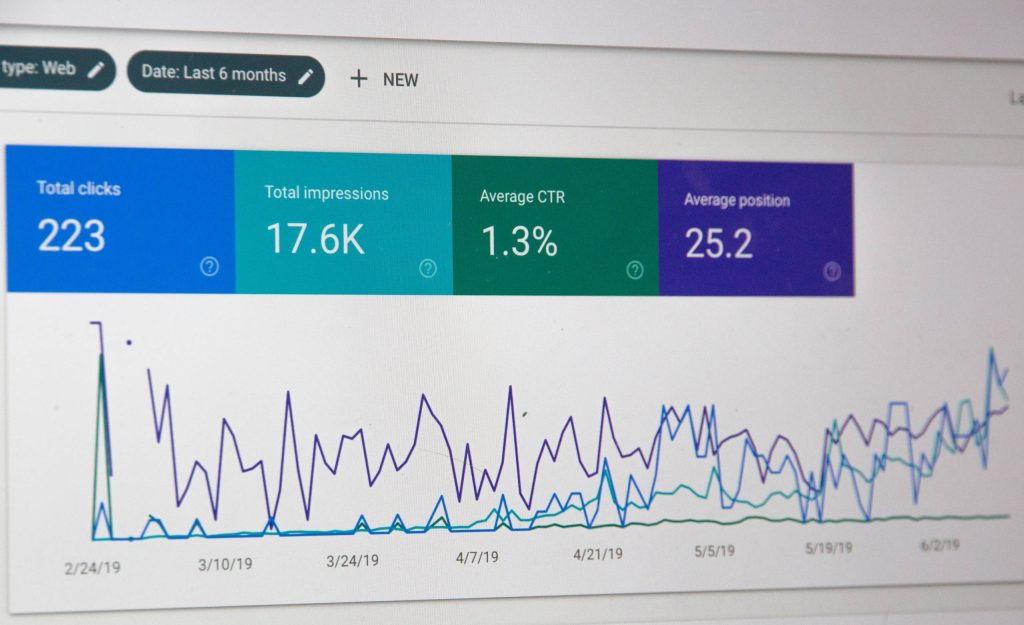
More than just web analytics, marketing analytics provides true insight into customer behavior across all sales and advertising channels.
HubSpot mentioned that measuring marketing advertising effectiveness still challenges marketers today. Even though anybody with a website can turn to such established dashboards as Google Analytics, web analytics tools like that only offer part of the information that marketers need to truly understand customer behavior.
It’s true that seeing metrics like page views, bounce rate, and load speeds provides important data about website performance. That data still doesn’t tell businesses enough about their customer’s overall behavior across multiple channels to make effective marketing decisions.
Digital marketing analytics vs. web analytics
To help businesses gain more insight, a good marketing analytics agency will ensure clients view web analytics as just one part of digital marketing analytics. Turning customer behavior into valuable business data requires a wider view than just the small slice of visitor actions displayed by a typical website tracker. Comprehensive marketing analytics will track customers through other parts of their journey, like social networks, emails, phone calls, TV ads, or even in-store events.
For example, a company could have developed a landing page that performs beyond expectations for on-page conversions. Still, without understanding the route customers took to get to that page, businesses could still lose money or at least, sacrifice profits. One marketing channel could deliver most of the conversions, while other expensive channels continue to underperform.
Only by understanding the customer journey better can businesses know exactly how each channel performs in order to make the adjustments they need to improve their ROI. A deep understanding of the customer journey — and its total cost to the business – can let that company know if they’re enjoying their maximum potential or even really making a profit at all.
What tools should businesses use for measuring marketing effectiveness?
According to the HubSpot article cited above, over eight out of 10 marketers say that their bosses expect them to measure each campaign. At the same time, less than a third believe they can provide adequate metrics to evaluate the ROI of every channel. It’s also not surprising to learn that web analytics emerged as the most popular analytics tool with surveyed marketers; however, just about half of the respondents said they did not even use that.
For a better view of commonly available analytics tools and the percentage of digital marketers who employed them, consider these statistics:
- Web analytics: 48 percent
- Email marketing analytics: 47 percent
- Contact form lead analytics: 38 percent
- Social media analytics: 30 percent
- Phone analytics: 27 percent
Just a few years ago, marketers may have felt overwhelmed by collecting comprehensive analytics data simply because they would need distinct tools that lacked integration. For example, they might track conversions on a web page and responses to sales calls but had no way to see how these two channels worked together.
These days, common integrations and even all-in-one marketing analytics dashboards are available for marketing performance tracking across multiple channels. Businesses that lack true marketing analytics should dig deeper to explore new methods for measuring marketing performance. If needed, a marketing analytics agency can offer their expertise to suggest the right processes and tools.
How a marketing analytics agency can deliver important benefits
Today’s marketing plans usually include multiple, complex consumer channels. Working with a marketing analytics agency will save time in choosing the right tools and using them to their full potential. In turn, the investment can return such benefits as:
- Integrate analytics with all marketing channels: Businesses might need to track consumers from paid ads, social media, blogs posts, loyalty programs, email subscriptions, and even in-store promotions. That way, they know which channels perform well and which ones need tuning or even discontinuing.
- Focus on people and not just website stats: With a focus on people and not just page views, marketers will know if their high-converting web page delivers sales from a radio spot, email blast, phone campaign, or a coupon on a receipt. Marketing analytics offers insights into how customers respond to various marketing activities through integration with all marketing channels, including a CRM, ad platform, or automated dialer.
For most of today’s businesses, sales may come from a website, a store counter, a call to customer service, an email offer, or a website landing page. And even knowing the point of the sale isn’t enough without understanding what other marketing activities prompted a person to make a purchase. That’s the kind of information that will improve marketing returns, plus it’s exactly what comprehensive marketing analytics can provide.


